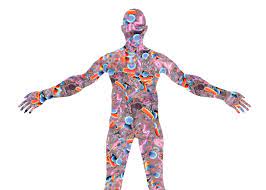Unraveling the Mysteries of the Human Microbiome: A Comprehensive Overview
The human microbiome has emerged as one of the most
intriguing frontiers in scientific research, promising to transform our
understanding of health and disease. Comprising trillions of microbes that
reside within and on our bodies, the microbiome forms a complex ecosystem that
influences various physiological processes. Unraveling the mysteries of the
human microbiome requires a comprehensive exploration of its structure,
function, and the intricate relationships it shares with its host.
At the heart of the microbiome lies the gastrointestinal
tract, particularly the gut, which harbors the most diverse and abundant
microbial communities. This symbiotic relationship between humans and their
microbial passengers begins at birth and evolves throughout life, influenced by
genetics, diet, lifestyle, and environmental factors. Recent advancements in
sequencing technologies have allowed scientists to delve deeper into this
microbial universe, uncovering a staggering diversity of microorganisms that
were previously unknown.
One key aspect of the human
microbiome is its contribution to digestion and nutrient metabolism.
Microbes in the gut assist in breaking down complex carbohydrates and fiber
that our bodies cannot digest independently. In return, they feast on the
byproducts of our metabolism, forming a mutually beneficial cycle. Moreover,
the microbiome plays a crucial role in synthesizing certain vitamins and
essential nutrients, further bolstering our overall health.
Beyond digestion, the human microbiome profoundly impacts
the immune system, acting as a gatekeeper against harmful pathogens. The gut's
microbial inhabitants help maintain a delicate balance that prevents pathogens
from overwhelming the body's defenses. This interaction is critical in
preventing infections and the development of chronic inflammatory conditions.
Imbalances in the microbiome, known as dysbiosis, have been linked to a range
of health issues, including autoimmune diseases, obesity, and even mental
health disorders.
Research into the human microbiome has also raised
intriguing questions about its potential influence on our behavior and brain
function. Scientists have observed a bidirectional communication pathway known
as the "gut-brain axis," where the microbiome can influence our brain's
neural circuits and neurotransmitter production. This opens up new avenues of
study into how gut microbes might play a role in conditions such as depression,
anxiety, and neurodegenerative diseases.
The possibilities for harnessing the potential of the human
microbiome are immense. The concept of personalized medicine has gained
traction, with the hope that understanding an individual's unique microbial
makeup could lead to tailored treatments and therapies. Additionally, research
is ongoing to explore the use of fecal microbiota transplantation (FMT) to
restore a healthy microbiome in individuals suffering from dysbiosis-related
conditions.




Comments
Post a Comment